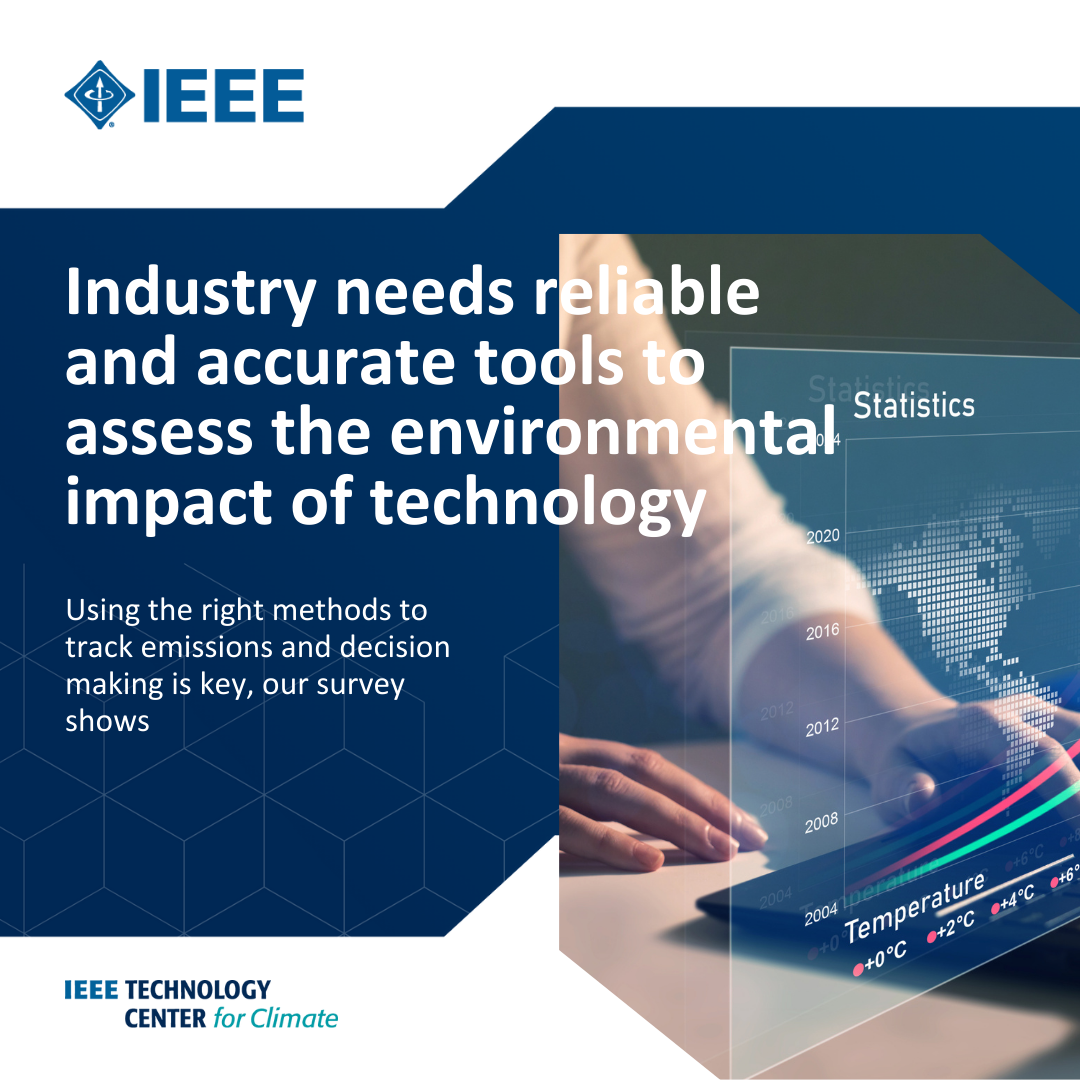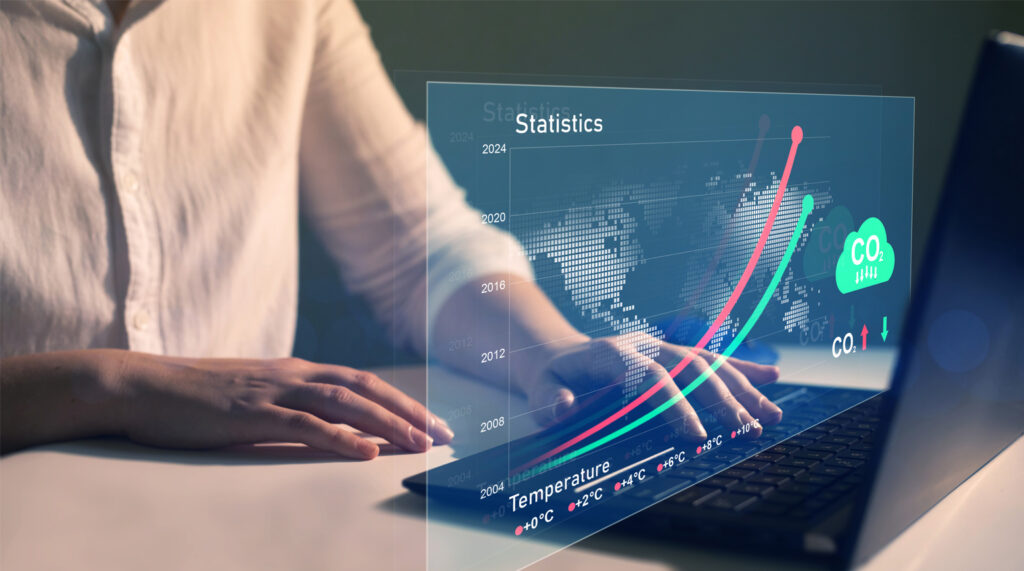Summary
Climate-related assessments and reporting tools are essential for understanding and mitigating the environmental impact of businesses.
The tools and methodologies used by an organization to determine their impact on the environment are essential for addressing climate change issues and building strategic mitigation policies. Metrics and indicators are essential as they enable organizations to measure against standards and requirements as a means to assess progress towards their goal towards sustainability and allow for data-driven decision-making.
To facilitate this, various frameworks have been created to standardize assessments across different areas and improve the quality and comparability of the data reported.
From target-setting to disclosing on emissions, these frameworks provide clarity on how to assess and report the environmental impact of an organization’s sustainability efforts.
We asked attendees at our Tools and Methodologies for Climate-Related Assessment and Reporting webinar to tell us which frameworks they’re using. Here are the top 5 results, with 5 more to follow:
Selected by 57% of respondents, the GHG Protocol is a collaborative venture between the World Resources Institute (WRI) and the World Business Council for Sustainable Development (WBCSD).
The GHG Protocol has created comprehensive cross-sector frameworks to help businesses account for their greenhouse gas emissions. Today a key aspect of the GHG Protocol is collaboration with the public and private sector (from governments, industry associations, NGOs to corporations) to provide emission calculation guidelines.
The GHG Protocol introduced the classification of emissions into Scope 1 on direct emissions, Scope 2 on indirect emissions and Scope 3, the hardest to reach, on indirect emissions that occur in the company value chain.
Between emissions calculation, online training, and review services offering specific sector advice, the GHG Protocol also works beyond the organizational level by helping cities and countries develop emissions-reduction programs.
The Global Reporting Initiative (GRI), used by 37% of our respondents, is an independent, international organization headquartered in Amsterdam, The Netherlands. GRI helps businesses communicate and take responsibility for their impact.
The organization provides the GRI Standards for sustainability reportingwhich cover a range of topics organizations may want to report on, including; healthy and safety, tax, waste and biodiversity. These rely on voluntary disclosure to encourage transparency between organizations and their direct stakeholders.
The GRI Sector Program is currently developing standards for 40 sectors – including mining, banking, and forestry – to identify where changes can be made and supports organizations in creating quality, comparable data on a range of sustainability topics from energy and emissions to water and social impacts.
34% of our respondents use CDP, which was established in 2000 and runs the global environmental disclosure system.
CDP works not only with businesses, but also with cities and governments and helps to build a sustainable economy by encouraging companies to disclose their carbon-related data in three areas: climate impact, deforestation, and water security through its voluntary, self-reporting platform.
The goal of CDP is to help businesses better understand and manage the financial risks associated with climate change, and to provide investors with more data to make informed investment decisions.
Disclosure across these three areas has built a bank of high-quality data and case studies that helps to clarify the links between climate impact and financial responsibility..
The Science Based Targets initiative (SBTi), used by 33% of our attendees, is focused on corporate climate action through showing companies how much they need to reduce their emissions and reach the targets set out in the Paris Climate Agreement, limiting global warming to 1.5°C. Beginning as a collaboration between CDP, the United Nations Global Compact, World Resources Institute and the World Wide Fund for Nature, the SBTi became a charitable organization in the UK in 2023 and addresses the need for a standardized approach to target-setting.
Private sector companies use a five-step process to set science-based targets in line with the Paris Agreement goals. When a company creates their individual targets, they are reviewed against SBTi criteria and, once validated, they are added to the target dashboard for consumer transparency.
The SBTi is continuously developing standards, best practices and flexible approaches to ensure that as many organizations as possible are able to set science-based targets for emissions reductions.
23% of our survey respondents reported using the Task Force on Climate-Related Financial Disclosures, which was created by the Basel-based Financial Stability Board following COP21 and the Paris Agreement in 2015. It offered a framework for organizations to develop effective climate-related financial disclosures that work alongside their existing processes.
It also aimed to develop recommendations on how companies disclose financial information related to their climate impact and to standardize the ways in which companies disclose this information, and to whom, with the aim to make companies’ climate-related disclosure consistent and comparable.
As of October 2023, the Financial Stability Board has announced that the TCFD’s work is complete. All climate-related disclosures associated with TCFD are now monitored by the IFRS Foundation. The IFRS Foundation formed the International Sustainability Standards Board (ISSB) at COP26, which has since incorporated the TCFD recommendations into its own Standards. Companies can still use the TCFD recommendations for financial disclosure if they choose, and any company using the ISSB Standards will meet TCFD recommendations.
Reporting for climate change
Only 8% of our survey respondents are not currently using a measurement framework or reporting tool to assess their climate impact.
These frameworks are critical tools in addressing climate change issues, promoting sustainable development and furthering operational efficiency across industries.
For further information on the importance of climate-related assessments and reporting, you can download Strong Sustainability by Design, a report from IEEE’s Planet Positive 2030 which uncovers how the deployment of technological solutions can help us address climate change.
Check the survey we conducted in connection with the webinar “Tools and Methodologies for Climate-Related Assessment and Reporting”:





Survey
We’d like to hear from you on this topic!
Where do you see the limits and challenges in climate-related assessment?
⬇ Let us know below ⬇


